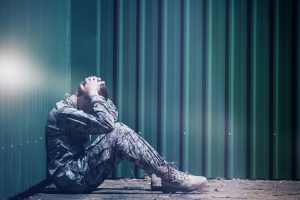
CCHR Calls for Ceasing Psychedelic Drug Trials on Military and Veterans
Mental health industry watchdog calls for an end to federal funding for psychedelic drug research on active-duty service members and veterans, likening it to the…


Mental health industry watchdog calls for an end to federal funding for psychedelic drug research on active-duty service members and veterans, likening it to the…
Kelli Grese overdosed on an antipsychotic medication called Seroquel on Veterans Day in 2010. The medication was part of a cocktail of drugs that doctors at the Hampton hospital had prescribed for her.
Some even cause worse depression and even suicide. The main side effects are nausea, insomnia, anxiety, restlessness, decreased sex drive, dizziness, weight gain or loss, tremors, sweating, sleepiness, fatigue, dry mouth, diarrhea, constipation, headache, et cetera. Who needs that stuff?!? They also screw up ones head and balance with falls and fractures. If one stops taking them, the withdrawal symptoms sound worse than heroin. In addition to all this, some are addicting and it is very difficult to stop taking them.
Andrew White returned from a nine-month tour in Iraq beset with signs of post-traumatic stress disorder: insomnia, nightmares, constant restlessness. Doctors tried to ease his symptoms using three psychiatric drugs, including a potent anti-psychotic called Seroquel. Thousands of soldiers suffering from PTSD have received the same medication over the last nine years, helping to make Seroquel one of the Veteran Affairs Department’s top drug expenditures and the No. 5 best-selling drug in the nation.
The widely used Seroquel antipsychotic was never approved to treat post-traumatic stress disorder or the insomnia sometimes related to the afflication, but that hasn’t stopped the drug from being prescribed for that purpose by the US Department of Veteran Affairs and, in the process, becoming one of the VA’s biggest expenditures.